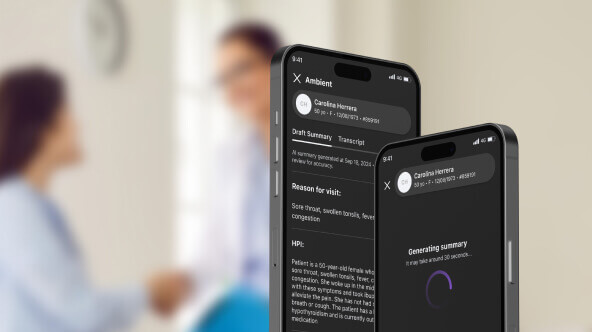Yosi Health + Peachtree Medical Center
Improving intake, efficiency, and the patient experience with Yosi Health
Nov. 07, 2025A medical practice enhances patient flow and reduces administrative burden

Operational bottlenecks and long wait times
Inefficient collections reducing revenue
Manual processes increasing staff workload
Low patient engagement and form completion
athenahealth Marketplace partner: Yosi Health
Integration with athenaOne®
Results
Streamlined workflows made the practice more efficient and patient-focused, with 83% of patients completing forms.
Check-in times were faster, patient engagement increased, and the practice saw significant savings.
$35,000
projected annual cost savings
10
minutes saved on admin per appointment
98%
intake forms completed online before arrival
Overcoming operational bottlenecks and manual processes to boost efficiency
Peachtree Medical Center, a busy practice in Georgia, faced persistent challenges that hindered staff efficiency and patient experience.
Manual intake processes, paper forms, and inconsistent payment reminders caused bottlenecks at the front desk, leading to longer wait times and lower collections.
Payment collection at the point of service was cumbersome, with no simple way to send reminders in advance. This often resulted in lower collections and uncomfortable payment discussions. Check-in times increased because patients completed all paperwork upon arrival.
These delays created bottlenecks, extended wait times, and limited the number of patients staff could process efficiently. Staff often faced a tough choice between rescheduling patients who didn’t arrive within the grace period or risk the physician running behind due to longer check-in times.
Recognizing the need to modernize workflows and improve patient experience, the practice partnered with athenahealth Marketplace partner Yosi Health to implement a comprehensive digital intake and engagement platform.
Yosi Health’s integrated platform automates intake, pre-screening, and payments
Yosi Health provided Peachtree Medical Center with a tailored platform to automate key front-office workflows and enhance the patient experience.
The implementation included automated payment reminders for co-pays and past-due balances, along with secure card-on-file collection in advance. These processes streamlined collections at the point of care and eliminated uncomfortable payment interactions.
The online pre-arrival intake system allowed patients to complete all required forms, consent documents, and pre-screening questionnaires before arriving, significantly reducing check-in times and congestion at the front desk. And Yosi Health’s discrete data integration with athenaOne eliminated manual data entry, freeing staff to focus on patient care.
Pre-screening tools gave clinicians and medical assistants access to relevant patient information before visits, improving preparation, care delivery, and reducing triage time. The system also supports on-demand form completion, allowing patients to fill out additional forms electronically — seamlessly importing data and PDFs into athenaOne.
Transforming patient engagement, operational efficiency, and revenue
By digitizing and centralizing workflows, Yosi Health helped Peachtree Medical Center reduce staff administrative burdens, save valuable time per appointment, and create a smoother, more efficient patient journey from check-in to checkout.
The results were clear. Intake completion rates rose to 83%, ensuring most patients finished forms before their visit. Transitioning paperwork online and automating manual processes led to projected annual savings of $35,000 through reduced staff time and operational costs.
Payment collection also improved — over 800 card-on-file details have been securely stored since go-live, streamlining collections at the point of care. On-demand forms now provide an efficient method for obtaining patient documents between visits, especially medical records release forms required for comprehensive patient care.
Staff saved an average of 10 minutes of administrative time per appointment. Additionally, 98% of intake forms were completed online before arrival, saving another five minutes during check-in. Clinicians and medical assistants now start each visit with complete patient information, enabling faster and more focused care. And through their use of pre-screening tools, the practice also increased their federally mandated depression screening rate to 91%.
The overall outcome was a smoother patient journey and a more productive, less stressful workflow for staff.
Seema Ibrahim, Director of Operations at Peachtree Medical Center, summed it up:
“Yosi Health has significantly improved our workflow. Our staff can now easily send payment reminders, which has streamlined our time of service and payment process, reducing awkward conversations with patients. Check-in times have decreased noticeably, and our clinicians and medical assistants really value the pre-screening tools. Having patients complete paperwork before they even walk through the door has reduced the administrative burden on our team and made the entire experience smoother for everyone involved.”
See how digital solutions can elevate your practice
Wonder how you could see similar results? Explore the athenahealth Marketplace and join other customers who are already benefiting from integrating Yosi Health.
We’re ready when you are. Let’s connect and discuss how we can partner for your success.
More reducing admin burden resources
Research and news
Results may vary by provider.
Please note that as a member of the Marketplace Program, Yosi Health and athenahealth are parties to a financial arrangement.









